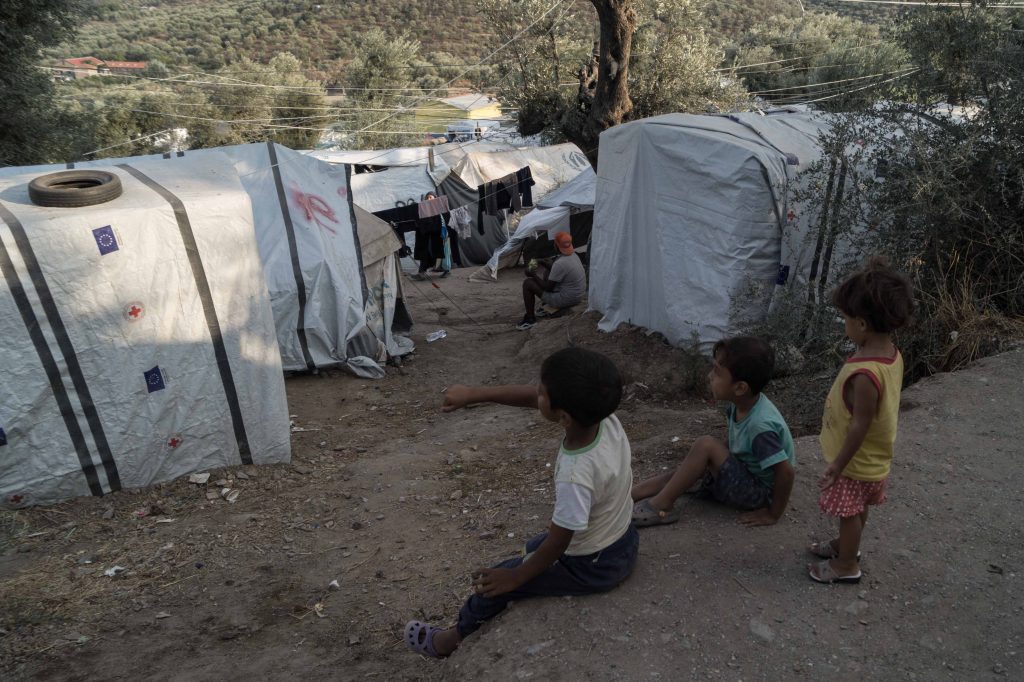No Help, No Hope?

by Niamh Punton
Amidst the chaos and panic of the coronavirus pandemic, one group within society has been largely ignored by media coverage and political decision making. There are currently 25.9 million refugees worldwide, and the impact of Covid-19 on this already vulnerable group is of particular concern. Forgotten by international governments and lacking support from key aid agencies; in the face of coronavirus, refugees appear to have been further marginalised and abandoned by the global community. Their lack of existing rights and access to key provisions such as sanitation and medical care threaten to exacerbate the potential consequences of coronavirus on the refugee community.
2.6 million refugees currently find themselves residing in refugee camps; whilst these camps provide temporary refuge from conflict, violence and discrimination that many are forced to flee from, the conditions are less than satisfactory. Whilst many countries have enforced social distancing to prevent the spread of coronavirus, this is a privilege that refugees simply do not have. On the Greek island of Lesbos 20,000 refugees live in Moria camp – a refugee camp designed to accommodate just 3,000 refugees. The majority of these refugees live in makeshift tents and shelters made out of tarpaulin and pallets, however upon arrival some are forced to sleep outside due to the sheer lack of provisions. With open sewers, no electricity and limited water supply, alongside the overcrowded conditions, camps such as Moria are incredibly vulnerable to the spread of coronavirus and severely underprepared to deal with a potential outbreak.
Refugees in the Middle East also find themselves in a precarious situation amidst this growing pandemic. Palestinians in Gaza are fearful of the destruction that Covid-19 could cause; refugee camps such as al-Shati, which at just 0.3 square miles is home to around 86,000 people, mean that it would be near impossible to contain an outbreak. Those living in Gaza already lack basic provisions such as clean drinking water and reliable electricity, which make preventing and combatting coronavirus all the more challenging. With only 60 intensive care beds and limited medical supplies, the impact of coronavirus for Palestinians living in Gaza would undoubtedly be devastating. Many other countries across the Middle East also lack the health systems to adequately address an outbreak of Covid-19. In Yemen - home to 300,000 refugees from countries such as Somalia and Ethiopia, as well as 3.65 million internally displaced persons- many medical facilities and hospitals have been destroyed by airstrikes as a result of the ongoing conflict. Provisions of supplies such as medicine and medical equipment are also limited due to the sea and air embargo enforced by the Saudi-led coalition. The individuals living in Yemen are already in the midst of a humanitarian crisis – ravaged by war, a battle against coronavirus would only worsen the current conditions that most Yemenis live in.
Already living in poor conditions, and reliant on Non-Government Organisations (NGOs) and governmental assistance, many refugees face being deserted in this time of need. The UN has already announced the temporary suspension of its refugee resettlement schemes – meaning that many will continue to be trapped in overcrowded refugee camps for the foreseeable future. Those living in refugee camps find themselves heavily reliant on NGOs for food, shelter, and medical aid, however the limited provisions that international organisations provide have also been threatened by the growing pandemic. In Greece the government suspended NGOs from any activities or visits to refugee camps for 14 days in a bid to prevent the spread of coronavirus; whilst a complete lockdown of refugee camps may help prevent an outbreak of coronavirus, refugees are in dire need of humanitarian assistance and as such the work of NGOs is vital. Despite calls to EU leaders to evacuate refugee camps as a preventative measure against a coronavirus outbreak, it seems that yet again those fleeing conflict and persecution are not considered a priority.
At a time when much of the international community is calling for solidarity, it appears that refugees are being largely ignored. The coronavirus does not discriminate – and therefore, neither should our willingness to help others in this time of crisis. Despite the pain and suffering that the outbreak of Covid-19 is causing, it also provides us with a chance to grow in compassion and understanding, to reach out to those most in need. With many complaining about the uncertainty that this outbreak has caused and the way in which lives have been forcibly put on hold, perhaps it is time to put ourselves into the shoes of the many refugees that have had no choice but to flee persecution, conflict and suffering. For most refugees, their lives are put on hold for years: years without an education, years without a place to call home, years without access to the basic human rights that we take for granted. This pandemic will eventually come to an end – the suffering of millions of refugees, however, will continue unless we begin to show compassion to those who deserve it most.
Niamh Punton, 2nd year BA Geography Undergraduate.
